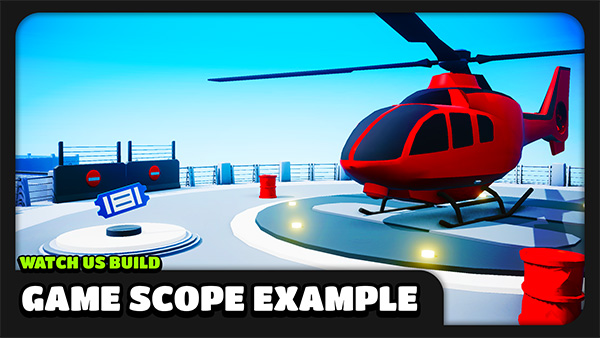¶ What is Game Scope?
The "scope" of a game refers to the overall size, complexity, and boundaries of the game you’re looking to create.
It defines what features, mechanics, and content will be included or excluded from the game. Managing the scope is crucial in your game development to ensure that the project can be completed within a reasonable timeframe and falls within your knowledge and expertise.
We cannot emphasize this enough especially when just starting out. This is not to crush your dreams, far from it and you just need to be realistic to avoid being overwhelmed and ultimately abandoning your project.
¶ Key Elements that Influence Game Scope
¶ Game World Size
The physical or digital size of the game world (e.g., an open world versus a smaller, linear environment).
Gameplay Features.
¶ The Range of Mechanics
This could include things like a combat system, crafting system or exploration features. It can also include elements like AI NPC's or physic based environments. These will be the basic building blocks of your the game.
¶ Content Volume
Related to the range of mechanics, these are the amount of characters, quests, levels, any asset that needs to be created.
For example, if you have enemies to defeat in your game, it's probably a little ambitious to have 50 different monsters right from the start. This is where deciding on 3 for example can really help control your game scope.
¶ Story and Narrative Depth
The length and complexity of the story, dialogue, and character development.
¶ Multiplayer Vs. Single Player
Whether the game will support multiplayer or collaborative features and systems, which can significantly increase the scope.
¶ Technical Complexity
The complexity of the underlying game systems and nodes that need to be created. Are you even sure that it’s reasonably, technically possible?
¶ Polish and Quality
The level of detail and refinement you’re hoping to achieve, from the look and feel, graphic style and allowing time for fixing any bugs. By controlling the game scope early on often helps to avoid what is commonly known as "feature creep".
¶ So what is Feature Creep?
This is where additional features keep getting added and making your game much larger and harder to manage. It’s all to easy to think you need to add more and more features to improve your game. However, it’s far more important to spend time on your core mechanics and gameloop.
Adding all the features in the world will not necessarily make your game any better and in a lot of cases you’re literally wasting time on stuff that doesn’t matter at all.
Having a well-scoped project is a way for you to create milestones to work towards and actually release your game. Test your core game as early as possible to gather feedback and iterate based on this.
¶ Watch the Next Video

¶ Game Scope For Mafia City
We outline the early stages of scoping Mafia City and why it doesn't need to be complicated.
Watch the Next Video